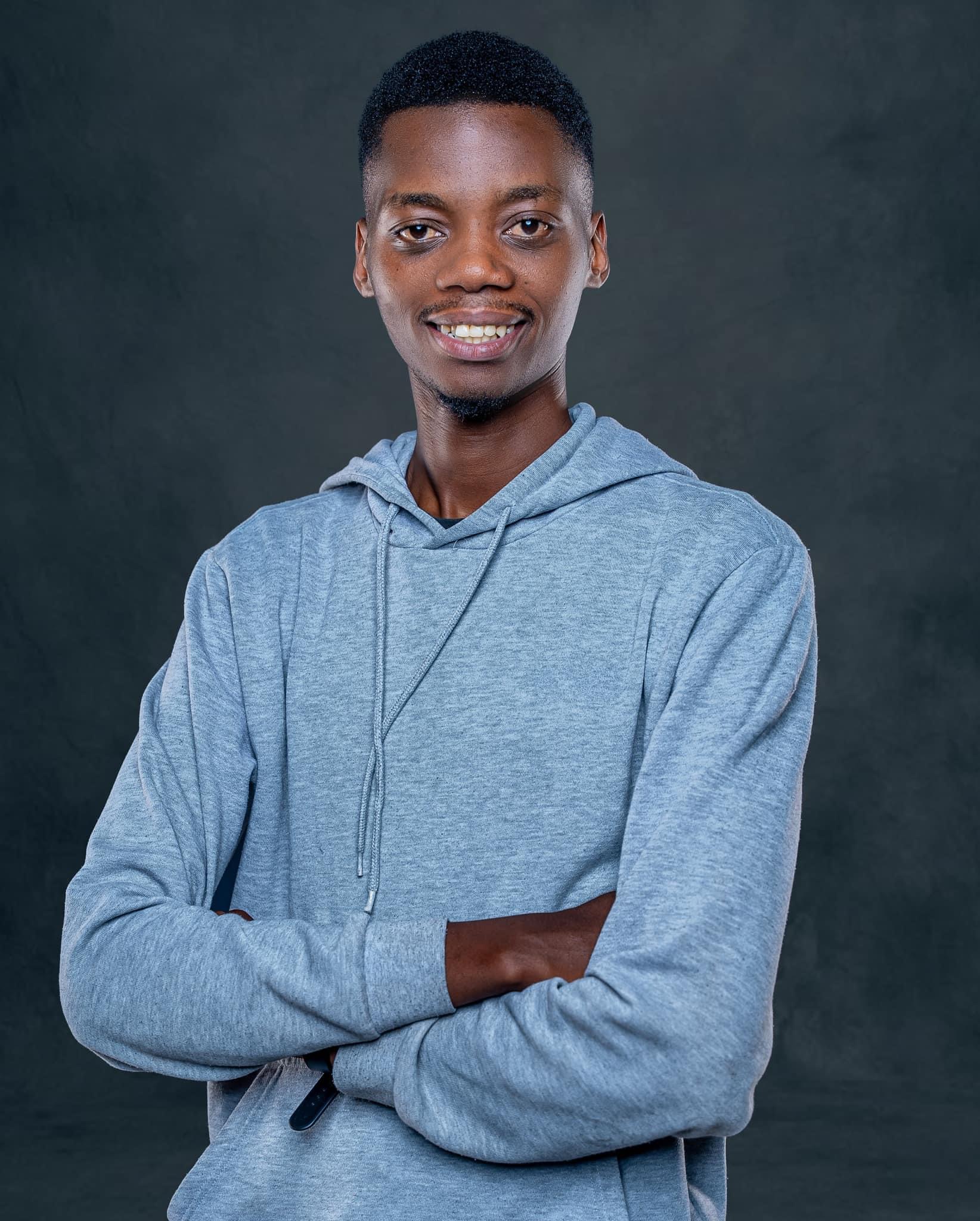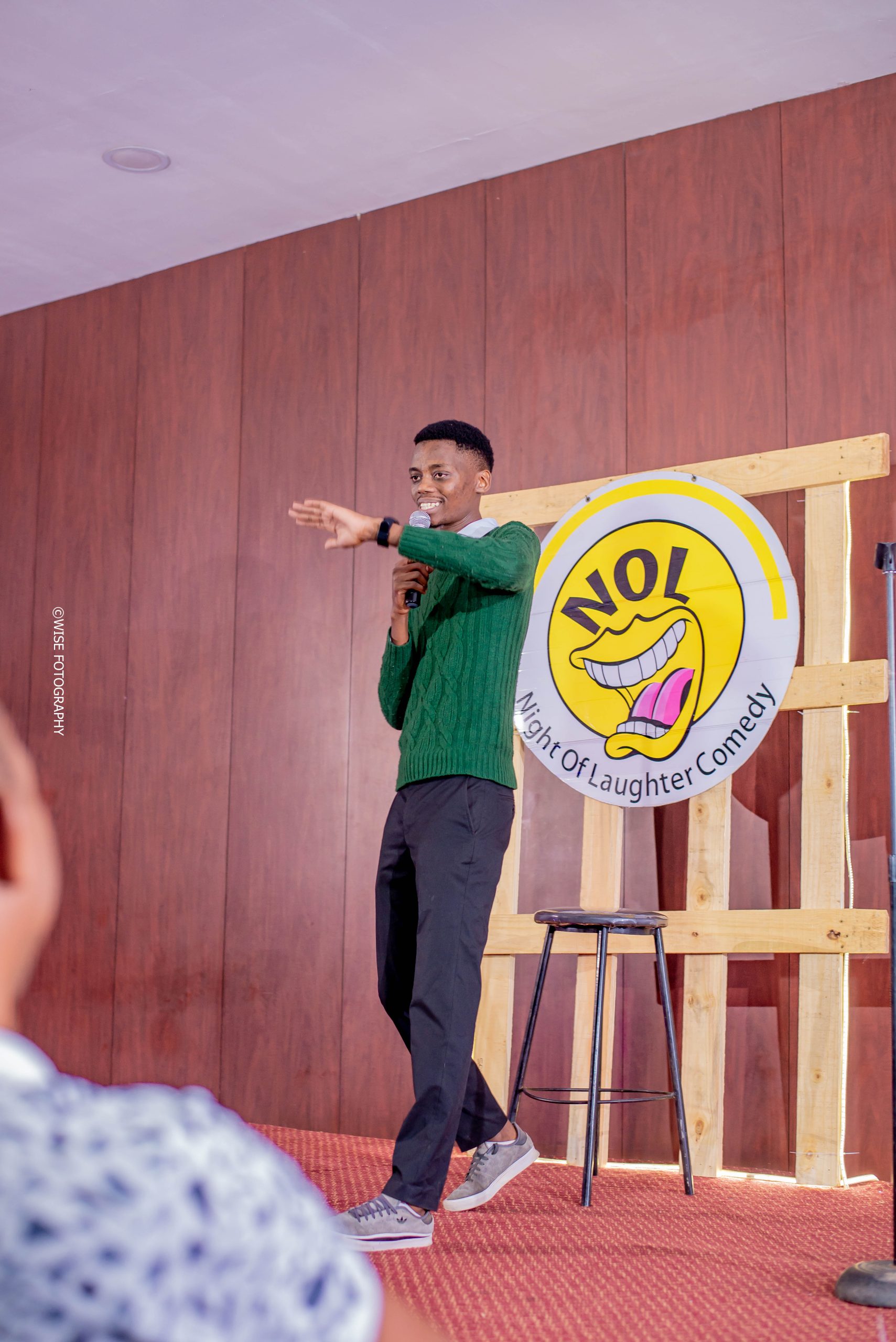By Siphesihle Dlamini
Born Bongikhosi Dlamini, Dr Shakes has been in the comedy scene in the kingdom for a while now and has been making the right moves. Dr Shakes is a seasoned and award-winning local comedian.
He has been trending even internationally and has since been dubbed, ‘The Meme King,’ as he has been making waves with his accurate memes. Eswatini Sunday had a chat with the funny champ.
Eswatini Sunday (ESN): What inspired you to start a career in comedy in Eswatini?
Dr Shakes (DS): I was deeply inspired by the unique blend of traditional and contemporary culture in Eswatini. My desire to bring joy and laughter to my community is a driving force behind my work in comedy. In a world that often faces numerous challenges, I believe that laughter is a universal language that can uplift spirits and create a sense of unity.

Moreover, I realized that comedy could be a powerful tool for social commentary and change. Through humour, it’s possible to address important issues, provoke thought, and inspire discussions in a way that is engaging and accessible. Comedy allows me to highlight societal challenges, question norms, and encourage critical thinking, all while entertaining my audience. This dual role of comedy—as both entertainment and a catalyst for change—is what truly motivates me to continue my work in this field.
ESN: How did you break into the industry?
DS: My journey into comedy began at Church Mbabane Evangelical, where I would get a slot to perform during youth Sundays. These early performances allowed me to hone my craft and develop my unique comedic voice in a supportive environment.
In 2012, I became a resident comedian at Finesse Pub in Mbabane New Mall. This opportunity marked a significant step in my career. I began working with DJ Cash, who played a pivotal role in connecting me with gigs at Finesse. Sparks also came through with more opportunities, helping me establish myself in the local comedy scene.
A few years down the line, I participated in the LOL Comedy Competition, which I can confidently say was a stepping stone for me. The exposure and experience gained from this competition propelled my career forward, and from there, I never looked back.
ESN: Can you share a memorable experience from performing in other countries outside of Eswatini?
DS: My comedic journey has taken me across most countries in the SADC region, including Lesotho, Botswana, South Africa, Mozambique, and Zambia. Each country offered unique experiences and audiences, contributing to my growth as a comedian.
Of all these, performing in Zambia and Botswana stands out as the most memorable. The audience’s energy and the diversity of the crowd in these countries made for an exhilarating experience. The enthusiasm and engagement from the audience fueled my performances, creating a vibrant and dynamic atmosphere that was incredibly rewarding.
These experiences also taught me a valuable lesson: humour has the power to transcend cultural differences. Despite the varied backgrounds and perspectives of the audience members, laughter united us all, showcasing the universal appeal of comedy. This realization reinforced my belief in the power of humour as a tool for connection and communication across diverse cultures.
ESN: How do you adapt your comedic style to resonate with audiences in different countries?
DS: When crafting my comedy, I invest a significant amount of time in researching and observing the local culture, customs, and current events of the places I perform. This process is crucial to ensure that my jokes are relevant and resonate with the audience. Understanding the cultural nuances and societal dynamics allows me to create humour that is not only entertaining but also meaningful and insightful.
RELATED: Dr Shakes, Ndosh WebeNguni set for epic chowing showdown
Before a performance, I delve into the local context by reading news articles, engaging with local media, and sometimes even talking to residents. This helps me gain a deeper understanding of the issues and topics that are important to the community. I look for common experiences and shared values that can form the basis of my jokes, making them more relatable to the audience.
During my performances, I pay close attention to the audience’s reactions. Comedy is a dynamic and interactive art form, and the audience’s response is a valuable guide. I observe their reactions to different types of humour and adjust my performance accordingly. This real-time feedback loop allows me to fine-tune my delivery, timing, and content to better suit the audience’s preferences.
My goal is always to ensure that my humour is both relatable and respectful. I strive to strike a balance between being funny and being considerate of the audience’s sensibilities. By doing so, I aim to create an inclusive and enjoyable experience for everyone. This approach has helped me connect with diverse audiences across different cultures, reinforcing the idea that humour when done thoughtfully, can be a powerful bridge between people.
ESN: What challenges have you faced as a comedian performing internationally?
DS: Navigating language barriers, cultural differences, and varying comedic tastes can be challenging in my career as a comedian. Each country and region has its own unique sense of humour, shaped by its history, culture, and societal norms.

What is considered funny in one country may not resonate in another, and understanding these nuances is crucial to delivering successful performances. Despite these challenges, I see them as opportunities to grow and expand my comedic repertoire. Each performance in a new country or region is a learning experience that enhances my understanding of global humour.
By embracing these challenges, I can create comedy that transcends boundaries and connects with people on a deeper level. The key is to remain flexible, open-minded, and respectful of the audience’s unique cultural context.
ESN: How have you overcome them?
DS: To overcome fears and challenges as a comedian, I rely on adaptability and an open-minded approach. This involves embracing new environments and audiences with a willingness to adjust my performance style as needed. Engaging with local comedians is crucial in this process; it helps me understand their perspectives, humour preferences, and cultural nuances.
ESN: Are there any comedians from other countries who have influenced or inspired your work?
DS: I’ve been greatly inspired by comedians from other countries who have not only entertained audiences but also organized successful comedy festivals. For instance, Chingliz from Zambia hosts the Zed Laugh Festival, Bonez in Lesotho organizes the Lesotho Comedy Festival, and Major Moves in Botswana runs HICOFEST. Witnessing their dedication and the impact of these festivals on their respective comedy scenes inspired me to initiate the Eswatini International Comedy Festival.
The idea behind the Eswatini International Comedy Festival is to create a platform that celebrates comedy while fostering collaboration and cultural exchange among comedians from different countries. It’s a way to showcase local talent while also inviting international comedians to share their unique perspectives and humour.
RELATED: Shakes & Les ready to shake up the Epic Gig
Through this festival, I aim to not only entertain but also to promote comedy as a professional and respected art form in Eswatini. It’s an opportunity to strengthen the comedy community, explore new comedic styles, and engage with diverse audiences.
ESN: How do you keep your material fresh and relevant to audiences both in Eswatini and abroad?
DS: Staying updated with current events, trends, and popular culture is essential to my comedy craft. I make it a priority to stay informed about what’s happening locally and globally, as these insights often provide fertile ground for humour and satire.
I regularly immerse myself in news articles, social media trends, and entertainment updates to capture the pulse of the audience’s interests and concerns. This ongoing research allows me to weave relevant and timely references into my material, making it more relatable and engaging for my audience.
Writing new material is a continuous process in my comedic journey. I dedicate time to brainstorming ideas, jotting down observations, and crafting jokes that reflect my unique comedic voice. Experimenting with different styles—from observational humour to storytelling and character-based comedy—helps me explore diverse comedic avenues and discover what resonates best with my audience.
ESN: Can you share a behind-the-scenes moment that highlights the realities of being a comedian?
DS: There was a particularly memorable time when my car broke down so severely in Malagwane that the police had to come and manage the traffic. In a quick decision, I left the car there, called a friend for a ride, and posted the car for sale on Facebook Marketplace right then and there. It was a challenging situation, but I managed to put on a brave face and went ahead with my scheduled performance.
Performing under such circumstances underscored the resilience and dedication required in this profession. Despite the initial stress, the laughter and energy from the audience reminded me why I do what I do—it’s about bringing joy and laughter even amidst challenges.
Nerves are always a part of performing. Before going on stage, I often find myself alongside other comedians, each dealing with nerves in their own way—some in separate corners, others making noise backstage. It’s a testament to how we all cope and support each other in this unique art form. One of the rituals I cherish is praying before going on stage.
ESN: What advice would you give to aspiring comedians who want to make a name for themselves?
DS: Persistence is key in the journey of a comedian. It’s about staying committed to your craft, even when faced with challenges or setbacks. As you navigate the ups and downs of the entertainment industry, staying true to your unique comedic voice is essential. Your voice is what sets you apart and connects you authentically with your audience.
Don’t be afraid of failure; it’s a natural part of any creative pursuit. Each setback presents an opportunity to learn, adapt, and grow as a comedian. Embrace failure as a stepping stone towards improvement. Reflect on what worked and what didn’t and use those insights to refine your material and performance.
Honing your craft is an ongoing process. It involves continuously sharpening your comedic skills, exploring new ideas, and pushing the boundaries of your creativity. Experiment with different styles, topics, and formats to keep your comedy fresh and engaging.
ESN: How do cultural differences impact your comedy when performing in different countries?
DS: Cultural differences play a significant role in shaping how jokes are perceived and appreciated. Humour that resonates in one culture may not necessarily translate well in another due to varying social norms, historical contexts, and cultural sensitivities. This diversity requires comedians to approach their material with careful consideration and respect.
Social norms differ widely across cultures, influencing what topics are considered appropriate or taboo for comedic exploration. What may be a lighthearted subject in one culture could be perceived as offensive or insensitive in another. Comedians must navigate these nuances by researching and understanding the cultural context in which they are performing.
Historical contexts also contribute to the interpretation of humour. Jokes that reference specific historical events or cultural figures may not be universally understood or appreciated. It’s essential for comedians to be mindful of these references and provide sufficient context to ensure clarity and inclusivity in their comedy.
A respectful approach involves recognizing and embracing cultural diversity while avoiding stereotypes or derogatory portrayals. Instead of relying on cheap laughs, comedians can focus on universal themes and experiences that transcend cultural boundaries. This approach not only enhances the relatability of jokes but also fosters a sense of unity and mutual understanding among diverse audiences.
ESN: Have you ever had a joke that didn’t land well in a foreign country?
DS: I’ve had an experience where a joke that was well-received back home didn’t quite land when I performed it abroad. The discrepancy was due to different cultural references that didn’t resonate with the international audience. This instance served as a valuable lesson in understanding the importance of cultural context in comedy.
As comedians, our material is deeply influenced by our cultural background and experiences. What may be familiar and humorous to one audience may not translate seamlessly to another audience with different social norms and historical contexts. This experience reinforced the need for me to adapt my material and ensure that it’s relatable and respectful across diverse cultural settings.
ESN: How did you handle it?
DS: In that instance where the joke didn’t land due to cultural differences, I acknowledged the misstep with humour, quickly pivoted, and smoothly transitioned to other material. Being flexible and responsive to the audience’s reactions is crucial in comedy. It’s about reading the room and adjusting your performance in real time to maintain engagement and connection with the audience.
Acknowledging mistakes with humour can defuse any tension and show the audience that you’re attuned to their feedback. This approach not only demonstrates professionalism but also allows for a seamless flow of performance. It’s a skill that every comedian hones over time—knowing when to adapt, when to improvise, and when to gracefully move on.
Ultimately, comedy is a dynamic and interactive art form where every performance is a learning experience. Embracing flexibility and being responsive to audience cues ensures that each show is a unique and memorable experience for both the performer and the audience.

ESN: What do you think is the key to connecting with audiences from diverse cultural backgrounds through comedy?
DS: In comedy, finding common human experiences and emotions that resonate universally—like love, fear, and joy—is a powerful way to bridge cultural gaps. These fundamental aspects of the human condition transcend cultural boundaries and connect us all on a deeper level.
By tapping into these shared experiences, comedians can create material that resonates with diverse audiences, regardless of their background or cultural context. Whether it’s the awkwardness of a first date, the anxiety of public speaking, or the absurdities of everyday life, these themes are inherently relatable and evoke empathy and laughter across cultures.
Highlighting universal emotions allows comedians to foster understanding and empathy among audiences from different cultural backgrounds. It’s a way to celebrate our common humanity while appreciating the richness of cultural diversity.
ESN: How has your material evolved over the years as you gained experience performing in different places?
DS: Over time, my comedy material has evolved to become more versatile and nuanced. I’ve learned to strike a balance by incorporating a mix of local and universal themes into my performances. This approach not only makes my comedy more inclusive but also enhances its appeal to a diverse audience.
By integrating local references, customs, and current events, I aim to connect more deeply with audiences in specific regions. These elements add authenticity and relevance to my material, making it relatable and resonant for local spectators.
Simultaneously, incorporating universal themes—such as love, fear, family dynamics, and everyday struggles—ensures that my comedy transcends cultural boundaries. These themes resonate universally, allowing me to engage audiences from different backgrounds and perspectives.
This blend of local and universal themes has enriched my comedic repertoire, making it more dynamic and engaging. It’s a continuous learning process that has enabled me to craft performances that are not only entertaining but also meaningful and impactful.
ESN: Are there any topics or themes that you avoid in your comedy when performing?
DS: In my comedy, I prioritize avoiding sensitive topics that have the potential to be offensive or hurtful to audience members. This includes subjects related to politics, religion, and personal tragedies unless I can handle them with the utmost sensitivity and respect.
Sensitive topics often carry deep personal significance and can evoke strong emotions among audiences. As a comedian, it’s essential to be mindful of these sensitivities and to ensure that my material doesn’t cross boundaries or cause discomfort.
Instead, I focus on creating a positive and inclusive atmosphere where laughter brings people together. I steer clear of divisive or controversial subjects and aim to entertain with humour that uplifts and unites.
However, there are times when I may choose to address sensitive topics if I can do so in a thoughtful and responsible manner. This involves careful consideration of the audience’s receptiveness and ensuring that the material is presented with empathy and understanding.
ESN: Can you share a heartwarming or funny encounter you had with a fan?
DS: One of the most rewarding aspects of being a comedian is hearing from fans about how my comedy has made a positive impact on their lives. I’ll never forget when a fan shared with me that my comedy helped them through a difficult time. Knowing that my work could bring laughter and joy during challenging moments is incredibly humbling and heartwarming.
As a comedian, I strive to create material that not only entertains but also resonates on a deeper level with my audience. Comedy has a unique ability to uplift spirits, provide a moment of escape, and foster connections between people. Hearing firsthand how my comedy has made such a difference reinforces my passion for what I do.

ESN: How do you balance staying true to your comedic roots while also appealing to a global audience?
DS: By blending local humour with universal themes in my comedy, I strive to maintain authenticity while appealing to a broader audience. This approach allows me to celebrate my origins and cultural identity while also connecting with diverse spectators who may come from different backgrounds.
Local humour, rooted in specific cultural references, customs, and experiences, adds a unique flavour to my comedy. It resonates deeply with audiences familiar with those contexts, fostering a sense of camaraderie and shared laughter.
At the same time, incorporating universal themes—such as love, family dynamics, everyday challenges, and human quirks—ensures that my comedy remains accessible and relatable across cultural boundaries.
RELATED: Africa’s Got Talent to unearth hidden gems
These themes speak to fundamental aspects of the human experience that transcend geographic and cultural differences. Finding a balance between local humour and universal themes is essential. It allows me to honour my origins while embracing the diversity of my audience. This inclusive approach not only enriches my comedy but also fosters a deeper connection with all who enjoy it.
ESN: What do you hope audiences take away from your comedy?
DS: When I perform, my ultimate hope is that the audience leaves with a profound sense of joy, a fresh perspective on everyday life, and a deep appreciation for the unifying power of laughter. Comedy isn’t just about making people laugh—it’s about creating moments of shared happiness and connection.
I aim to uplift spirits and provide a humorous lens through which to view life’s ups and downs. Whether it’s finding humour in the mundane or shedding light on relatable experiences, I strive to leave a positive impact on my audience.
Ultimately, I hope that through my comedy, audiences not only enjoy themselves but also gain a deeper appreciation for the universal language of laughter. It’s a privilege to bring joy to others and to contribute to a sense of unity and positivity in the world.


